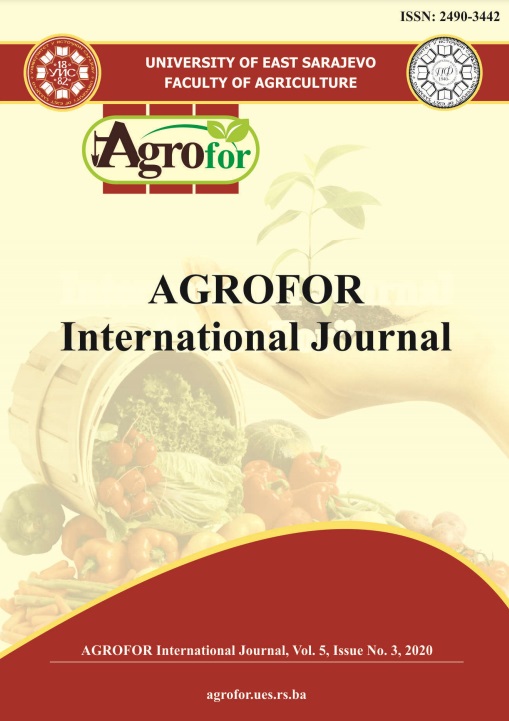GLOBAL LARGE-SCALE LAND INVESTMENT IN AFRICA: IMPLICATIONS FOR THE ENVIRONMENT
DOI:
https://doi.org/10.7251/AGRENG2003013KAbstract
The attainment of sustainable development goals (SDGs) in Africa will depend in
part on its endowment, productivity and management of the land resource. Thus,
due to the multipurpose usage of the land, there is more interest in its acquisition
and usage, which often lead to competition among investors. More so, the intensive
use of land for economic activities often impacts on the environment. This has
implication for the target countries’ sustainable development. It is on this basis that
this study investigates the effects of large-scale land investments on the
environment. The study adopts the sample selection model to find that at the
decision to invest, there is the tendency the environment gets more deplorable
while the foreign investors sustainably use the land and this is not the case for
domestic investors. At the actual large-scale land investment level, the foreign
large-scale land investment has adverse effects on the environment, but they
maintain sustainable use of land, while the domestic large-scale investment
negatively impacts on both the environment and the sustainable land use. Climate
change impeded the availability of large-scale land. Thus, although the large-scale
land investments could mitigate the challenges of national food insecurity, there
should be intense efforts by the government to continuously monitor and regulate
the activities of these investors to conform with global environmental best
practices.

